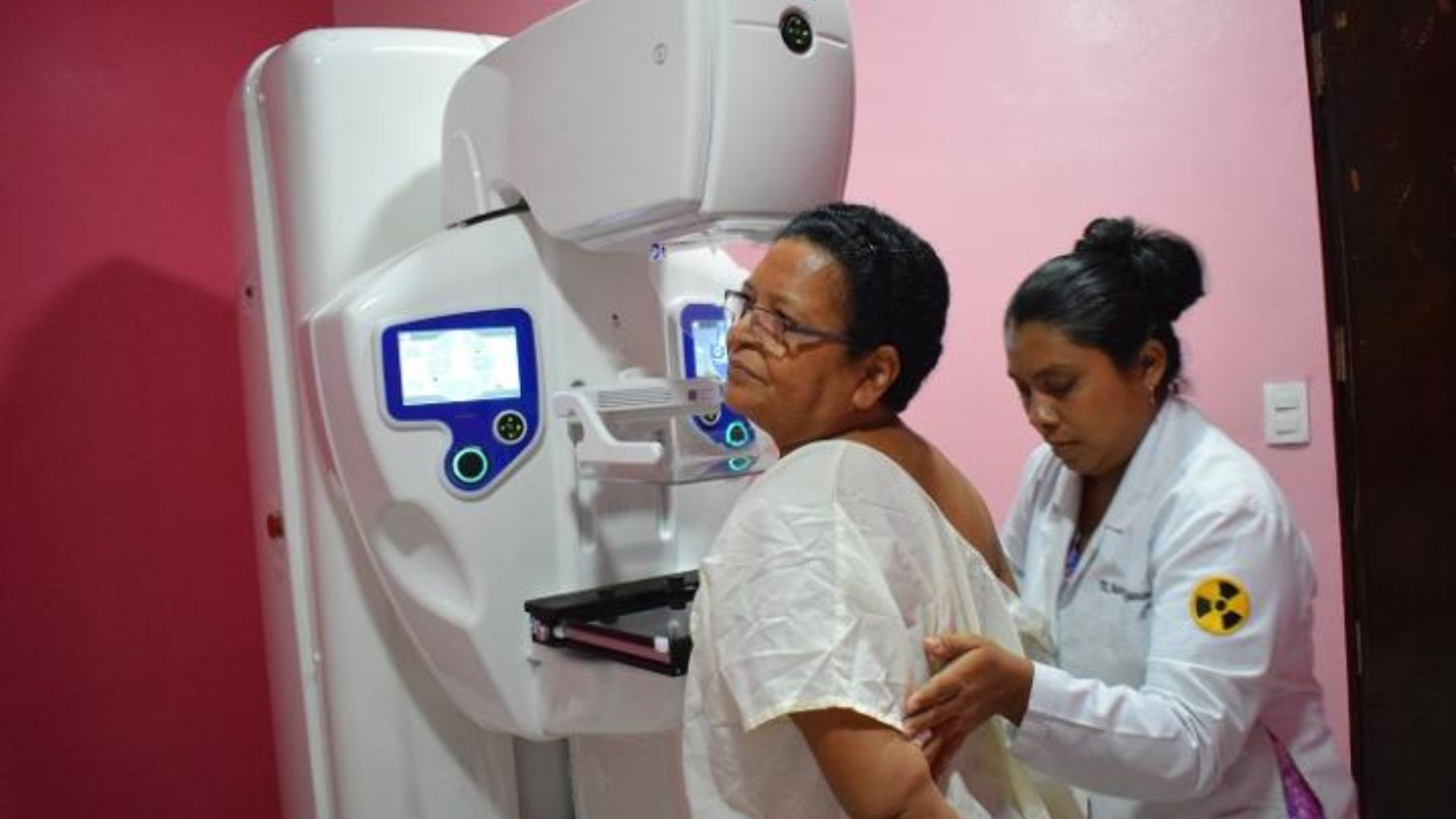Statistics from the Nicaraguan Ministry of Health indicate that in 2023, 278 women died due to malignant breast tumors, while another 225 died from cervical cancer.
These figures reflect the harsh reality that affects thousands of families in the country, and despite efforts to combat these diseases, challenges persist.
Having a patient diagnosed and undergoing treatment for breast or cervical cancer represents an emotional, psychological and economic strain for all family members.
A Story of Pain and Struggle
Katy, a 17-year-old teenager, has seen her life turned upside down when her mother was diagnosed with cervical cancer.
The disease was revealed after her mother suffered intense bleeding, which led her to seek emergency care at a hospital in Managua. “The doctors told her that she had to have surgery. However, the constant bleeding and the variation in her blood pressure have not allowed them to perform the procedure,” Katy says, very worried.
Related news: Breast cancer is the second cause of death in Nicaraguan women
Katy’s family is in a precarious economic situation. Her father, a bricklayer by profession, is the sole breadwinner for the family, but his income is unstable and depends on the availability of work. “We are receiving support from an aunt, but the fear of what could happen to my mother is great,” explains the young woman, reflecting the anguish she feels in the face of uncertainty.
Alarming figures
Cervical cancer is the leading cause of sexual and reproductive health-related death in Nicaraguan women, according to a World Health Organization (WHO) report published in 2021.
Despite the progress that Daniel Ortega’s regime claims to have made in the prevention and treatment of this disease, data from the Ministry of Health show that the number of women who have died has remained practically unchanged in recent years.
In 2018, 277 women died from cervical cancer, a figure that remained the same in 2023, highlighting the persistence of the problem and the need for a more effective and accessible approach for all Nicaraguan women.
Hope in Early Detection
Despite this bleak outlook, there is hope. Early detection of breast and cervical cancer can make the difference between life and death. Marbelí, a 25-year-old from Estelí, is an example of this.
Last year, she was diagnosed with an abnormality in one of her breasts, which turned out to be a pre-cancerous cyst. “I sought help because for a long time one of my breasts was very painful. I couldn’t even wear a bra. Then it became red and I couldn’t even lift my hand,” says Marbelí, who is grateful to have sought help in time.
Gynecologist Egdelia Moraga from Estelí stresses the importance of early detection in a local media outlet. “Regular mammograms and breast self-examination can help identify early signs and improve survival rates,” she says.
Related news: Don Omar announces that he has cancer and is already undergoing treatment
She also stressed the importance of vaccination against the human papillomavirus (HPV) and regular Pap tests to prevent cervical cancer.
Risk Factors and Prevention
Cancer prevention in Nicaragua faces additional challenges due to risk factors such as tobacco and alcohol use, physical inactivity, overweight, and prolonged use of oral contraceptives.
Spain’s National Cancer Institute has noted that women who smoke or are exposed to secondhand smoke have a higher risk of developing cervical cancer. In addition, the use of oral contraceptives for more than five years significantly increases the risk of breast and cervical cancer, although it decreases the risk of other types of cancer such as ovarian and colon cancer.

An international study that analyzed data from more than 150,000 women concluded that those who had ever used oral contraceptives had a 7% (10,500 women) higher risk of developing breast cancer compared to those who had never used them.
This risk is even higher for cervical cancer, with a 60% increase for women who have used oral contraceptives between five and nine years, and a doubled risk for those who have used them for more than a decade. However, the study also found that the risk gradually decreases once these contraceptives are stopped.
The Fight for Better Care
Many non-governmental organizations, including Caritas Diocesanas de Estelí, which maintained programs for the prevention and care of cancer and other diseases in women, were cancelled by the Ortega-Murillo regime, leaving many women in northern Nicaragua more vulnerable.
Now it is a struggle that, according to the Sandinista dictatorship, is only maintained with the support of the United Nations agencies that still remain, but reality shows that there is still much to be done.
Related news: King Charles III resumes his public agenda after being diagnosed with cancer
Healthcare in Nicaragua, especially for low-income women, remains a challenge. Access to early detection tests, adequate treatment, and ongoing care is limited, and many women, like Katy’s mother, face life-threatening obstacles.
The story of Katy and Marbelí is a reflection of the daily struggle of many women in Nicaragua, a struggle that requires a stronger and more sustained commitment from the authorities and society in general.
It is essential to strengthen early detection programmes and ensure access to effective treatments for all women, regardless of their economic situation.
A Call to Action
Breast cancer and cervical cancer are serious problems that affect Nicaraguan women, but they are diseases that can be prevented and treated if detected early.
Early detection, education about risk factors and access to quality health services are essential to reduce mortality from these diseases.

Urgent action is needed to improve cancer prevention, diagnosis and treatment in Nicaragua, and to ensure that no woman loses her life due to lack of access to the medical care she needs.
According to a doctor from Estelí who preferred not to give his name, there are too many deficiencies in care and a lack of interest in this issue in many social sectors, including organizations that work with women from abroad.
The road to improvement in the fight against cancer in Nicaragua is long and full of challenges, but with a comprehensive approach and genuine commitment, it is possible to save lives and offer hope to thousands of women and their families.


















